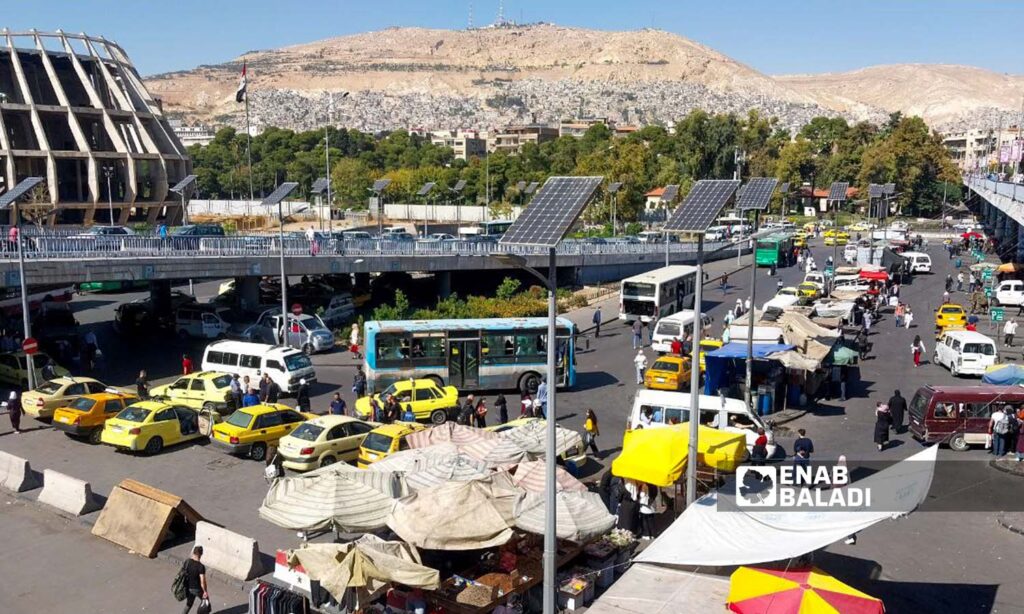The Syrian capital, Damascus, is experiencing chaos in the public transport sector, with a lack of clear organization regarding official fare charges, leading to widespread dissatisfaction among residents due to the significant increase in prices.
An Enab Baladi correspondent in Damascus reported today, Monday, December 16, that drivers of minibuses and buses are imposing arbitrary prices on passengers, taking advantage of the disorder resulting from the collapse of the Syrian regime.
Local residents told Enab Baladi that transportation fares in the Syrian capital have risen by more than 200%.
Fares reached 4000 Syrian pounds for travel within the city, while the fare for distant areas reached 8000 pounds, compared to a previous official fare of only 1000 pounds inside the city and 2000 pounds for long routes before the regime’s collapse.
Drivers of transportation services attributed the increase in fares to rising fuel prices, as they are forced to purchase fuel from the black market following the interruption of official supplies from the government.
Several areas also suffer from a shortage of minibuses, leading to severe overcrowding and difficulty in citizens’ movement, as reported by the correspondent.
Residents of Damascus expressed their frustration over skyrocketing transportation prices, especially families with limited income. Noor, a resident of Damascus, stated that “transportation costs have become a heavy burden on families, hindering students from going to schools and universities and even employees from getting to their jobs.”
Others added that public transportation, including taxis, has become extremely expensive, making daily commutes “difficult” for low-income individuals.
The capital, Damascus, along with other provinces, experienced a transportation crisis during the tenure of the former Syrian regime following cuts to fuel allocations for transportation.
The supply of fuel to public transport vehicles, including minibuses and buses, was stopped, resulting in their cessation of operations and significant congestion during intermittent periods.
The government of the ousted president, Bashar al-Assad, distributed fuel allocations to residents in areas under its control in a regulated manner, forcing them to turn to the black market to cover their needs. Prices fluctuate based on demand and the availability of subsidized materials, doubling during recurring fuel crises while decreasing when supplies are available regularly.
Additionally, most prices of consumer goods have been impacted by the rising fuel costs amidst a decline in residents’ purchasing power and a deteriorating economic situation, leading many families to rely on remittances from Syrians living abroad to secure the minimum living requirements.

